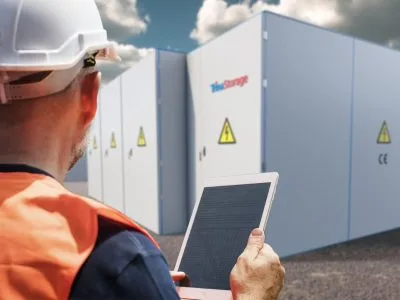New Robust Batteries Are Yet To Transform Energy Storage Future
Renewable energy sources continue penetrate the energy market and lead to a growing demand for energy storage systems so that utilities can better balance demand and supply and ensure grid stability. At present, lithium-ion batteries are one of the popular methods for energy storage.
Although increased production capacities have led to a lowered cost of lithium recently, lithium batteries are not without drawbacks. There have been some safety and reliability concerns, they have short lifespan and require an expensive recycling after end-of-life.
For utilities, other emerging battery technologies with longer life cycles may offer a better solution. Another alternative for utilities are the “flexible gas plants”, which can not only manage peak power demand but also ensure grid stability and unlike lithium batteries, can operate for more than 30 years.
The state of California has aggressive renewables target and mandates that utilities test batteries by adding more than 1.3 gigawatts of electrical power storage capacity by 2020. This leads to many new energy storage projects that have to be completed in a short period of time.
Researchers from countries worldwide are exploring many emerging battery technologies in the hope to find the most efficient and reliable product for energy storage. Some of the lithium-ion battery alternatives that scientists are looking into are the flow batteries, zinc air, silver-zinc, sodium-sulfur, salt–water, nickel–zinc and nickel–hydrogen batteries.
Image Credit: Younicos
If you want to know more about this and other topics directly from end users of energy storage technologies join us at one of these annual events: The Energy Storage World Forum (Grid Scale Applications), or The Residential Energy Storage Forum, or one of our Training Courses.



